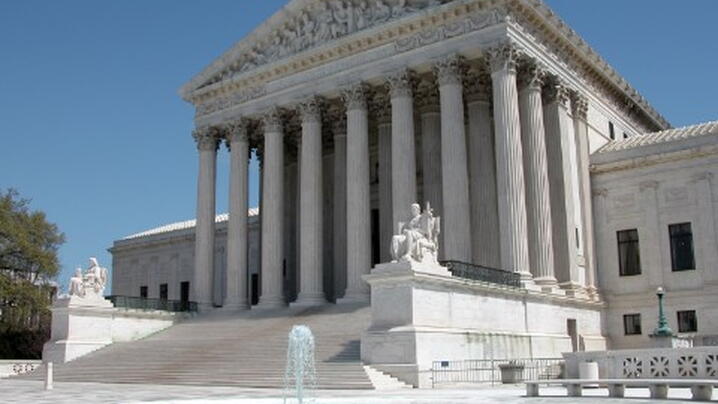
by Lisa Soronen, executive director, State and Local Legal Center
As of the end of July, Justice Anthony Kennedy is retired. For states and local governments, he will be forever remembered as the Justice who championed allowing online sales tax collection.
In March 2015, Justice Kennedy wrote that the “legal system should find an appropriate case for this Court to reexamine Quill,” which held that businesses without a physical presence in the state did not have to collect sales tax. In his last majority opinion on the bench, South Dakota v. Wayfair, the Supreme Court overturned Quill.
Justice Kennedy was a pivotal Justice for most of his 30-year tenure on the Supreme Court. He often provided the court’s crucial fifth vote on hot-button national issues. In Planned Parenthood v. Casey, Justice Kennedy blazed a middle path, writing part of the opinion that moved the court slightly to the right while declining to overrule Roe v. Wade. In LGBTQ cases, Justice Kennedy played a much more progressive role, writing for the majority to strike down a law allowing for same-sex discrimination and eventually striking down gay marriage bans in Obergefell v. Hodges.
Justice Kennedy has been widely described as a moderate conservative. Most of the time he was skeptical of race-based classifications; however, in 2016, he voted in favor of an affirmative action plan in Fisher v. University of Texas at Austin. On many other issues, Kennedy voted in lockstep with fellow Republican appointees, writing the court’s controversial opinion in Citizens United v. FEC and joining Bush v. Gore and D.C. v. Heller (involving gun rights).
Similar to Justice Kennedy’s legacy as a whole, his votes on state and local issues were often decisive and did not always fall along conventional ideological lines. As one of the court’s foremost champions of free speech, Justice Kennedy voted to strike down union “fair share” dues (with conservatives) and a ban on flag burning (with liberals) alike.
When it came to autonomy for the states, however, Justice Kennedy was often a proponent of federalism. In Bond v. United States, Justice Kennedy wrote that “[f]ederalism secures the freedom of the individual…by ensuring that laws enacted in excess of delegated governmental power cannot direct or control their actions.” Kennedy also sided with the conservative majority in cases involving the anti-commandeering doctrine, which prohibits the federal government from directing what states may and may not do.
In the criminal justice and law enforcement context, Justice Kennedy’s view of state power was tempered by his belief in the dignity of individuals. He joined the Court in most opinions granting police officers qualified immunity, as well as decisions granting officers more leeway in searches and seizures. However, Justice Kennedy was more liberal-leaning on the death penalty, authoring opinions striking down its use on offenders with intellectual disabilities and minors. Kennedy also sided with liberal justices in holding certain bodily searches unconstitutional and arguing for leniency in sentencing, often to accommodate the same dignitary interests that he argued for in other cases.
Outside of the law enforcement context, Justice Kennedy was also willing to grant states and local governments breathing room. In Kelo v. New London, for example, the court’s controversial eminent domain case, Justice Kennedy authored a concurrence describing the seizure of property for private development as permissible in certain circumstances. Likewise, Justice Kennedy authored the most significant public employment case of the Roberts’ Court tenure thus far. In Garcetti v. Ceballos, the court held public employee speech related to their job duties isn’t protected by the First Amendment.
For a lot of people, including state and local government officials, Justice Kennedy left much unfinished business. Would he have voted to expand gun rights, rights for LGBTQ employees, and finally agree to a standard for unconstitutional partisan gerrymandering? We will never know. While the fate of Judge Kavanaugh and his potential impact on the court remains uncertain, there is no denying that Justice Kennedy’s tenure was both unique and influential both for states and local governments and for the country as a whole.
Related Content
State and Local Governments Win Online Sales Tax Case. This 2018 blog post, reviews the court's ruling in the South Dakota vs. Wayfair case.
Justice Scalia’s Impact on State and Local Government. In a 2016 blog post, the legacy of another justice was reviewed that of Justice Scalia.
Ten Years of the Roberts Courts for State and Local Governments. This 2015 blog post looks at the first 10 years of the Roberts court on issues related to state and local government.
New, Reduced Membership Dues
A new, reduced dues rate is available for CAOs/ACAOs, along with additional discounts for those in smaller communities, has been implemented. Learn more and be sure to join or renew today!
